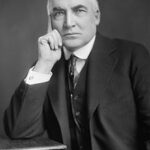The Broken Promise to Veterans
Warren G. Harding campaigned on helping World War I veterans in 1920. Yet his administration actively opposed immediate payment of promised service bonuses. The Harding Bonus Army precedent began when Congress passed the World War Adjusted Compensation Act in 1924. This law delayed bonus payments until 1945, despite veteran poverty. 📊 Over 3.5 million veterans received certificates instead of cash payments they desperately needed.
Economic Justification vs Human Need
Harding’s Treasury Secretary Andrew Mellon argued immediate payments would burden federal finances. The administration preferred tax cuts for wealthy Americans over veteran relief. ⚠️ This decision ignored widespread veteran unemployment and homelessness after the war. Many former soldiers struggled to find work in the post-war economy. The delayed compensation plan seemed financially prudent but socially devastating.
Setting the Stage for Crisis
The Harding administration’s stance created lasting resentment among veterans nationwide. Veterans Bureau corruption under Charles Forbes compounded the betrayal. 💰 Millions in veteran hospital funds disappeared through fraudulent contracts and kickbacks. These combined failures planted seeds for the 1932 Bonus Army march on Washington.
Impact:
The Path to Confrontation
Harding’s delayed compensation policy directly contributed to the 1932 Bonus Army crisis. 🔥 Over 43,000 veterans and families marched on Washington demanding immediate payment. President Hoover ordered military force against peaceful protesters, injuring hundreds. The violent confrontation shocked the nation and damaged Hoover’s presidency. This tragedy traced back to the Harding Bonus Army precedent of denying immediate relief.
Economic Consequences for Veterans
The compensation delay devastated veteran families during the Great Depression. 📉 Unemployment among veterans reached 30% by 1932, higher than civilian rates. Many veterans lost homes and businesses while waiting for promised payments. The certificates became known as ‘tombstone bonuses’ since many veterans died before 1945. Veterans sold their certificates at massive discounts to survive economically.
Political Legacy and Reform
The veteran compensation crisis permanently changed American military policy. Congress finally authorized early bonus payments in 1936 over presidential veto. 🌍 The GI Bill of 1944 reflected lessons learned from Harding-era failures. Modern veteran benefits programs emphasize immediate support rather than delayed promises. The Bonus Army tragedy became a cautionary tale about government obligations to military veterans.
